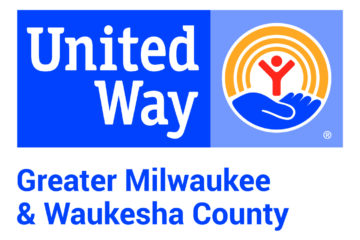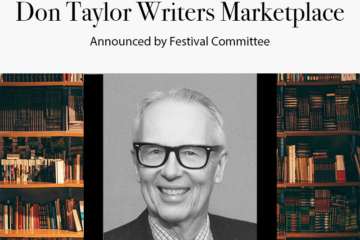N125
The Native American Experience through Poetry, the Law, and Memoir
Writers: Louis V. Clark III, Kimberly Blaeser, Matthew Fletcher
Moderator: Tim Thering
Three authors express what it actually means to be Native American through the use of very different words. Explore this culture with the lyricism of poetry, the experience of memoir, and the meaning of the law.
Kimberly Blaeser, past Wisconsin Poet Laureate and founding director of In-Na-Po, Indigenous Nations Poets, is the author of five poetry collections including Copper Yearning (2019), Apprenticed to Justice (2007), and Résister en dansant/Ikwe-niimi: Dancing Resistance (2020). An enrolled member of the White Earth Nation, Blaeser is an Anishinaabe activist and environmentalist, a Professor Emeritus at UW–Milwaukee, and an MFA faculty member at Institute of American Indian Arts in Santa Fe. She lives in rural Wisconsin; and, for portions of each year, in a water-access cabin near the Boundary Waters Canoe Area Wilderness in Minnesota. Additional information is available here: http://kblaeser.org
Louis V Clark III was born on the Oneida reservation of Wisconsin. Raised during the often troubled, often wonderful decade of the 1960’s, Clark learned to stand up for what he thought was right, aided by the guiding hand of many influential people. He joined forces with his beautiful wife during their high school years and together they ran away to build their own life aided by the Oneida principle of “looking ahead seven generations.” Encountering many obstacles along the way including a poetry professor who said that what he wrote wasn’t poetry and a theater professor who said that if what he wrote was any good that it was already being done. Clark continued to write. In Clark’s fifth decade the University of Arkansas along with the Sequoyah National Research Center published his chapbook “Two Shoes.” This work received an Oneida Fellowship Award and a Wisconsin Arts Board Award. In 2016 the Wisconsin Historical Society Press published his Memoir in Poetry and prose “How to be an Indian in the 21st Century.” This book received the 2017 Midwest Booksellers Choice Award as well as Oneida/Wisconsin Arts Board Award. WHSP published his follow up book, “Rebel Poet” in 2018 and this work received a Midwest Independent Publishers Book award. Clark currently has a play “Little Boy Lost/Stupid Indian” scheduled for airing on public radio sometime this year.
Matthew L.M. Fletcher is the Harry Burns Hutchins Collegiate Professor of Law at Michigan Law. He teaches and writes in the areas of federal Indian law, American Indian tribal law, Anishinaabe legal and political philosophy, constitutional law, federal courts, and legal ethics, and he sits as the Chief Justice of the Pokagon Band of Potawatomi Indians and the Poarch Band of Creek Indians. Professor Fletcher also sits as an appellate judge for the Cabazon Band of Mission Indians, the Colorado River Indian Tribes, the Grand Traverse Band of Ottawa and Chippewa Indians, the Hoopa Valley Tribe, the Lower Elwha Klallam Tribe, the Mashpee Wampanoag Tribe, the Match-E-Be-Nash-She-Wish Band of Pottawatomi Indians, the Nottawaseppi Huron Band of Potawatomi Indians, the Rincon Band of Luiseño Indians, the Santee Sioux Tribe of Nebraska, and the Tulalip Tribes. He is a member of the Grand Traverse Band.
N127
The Other Kind Of History Book
Writers: Lisa Vihos, Chris Yogerst
Moderator: Kirk Tyvela
Discover history without a textbook! Two authors share stories of history in very diverse and unexpected ways.
Lisa Vihos has appeared in many poetry journals, both print and online. Her first novel, The Lone Snake: The Story of Sofonisba Anguissola, was released in May, 2022 from Water’s Edge Press. She has also published four chapbooks, and has received two Pushcart Prize nominations and numerous awards from the Wisconsin Fellowship of Poets and the Wisconsin Academy of Sciences, Arts & Letters. She is a founding editor of Stoneboat Literary Journal and the Sheboygan organizer for 100 Thousand Poets for Change. In 2020, she was named the first poet laureate of Sheboygan where she hosts the podcast Poetry on Air for Mead Public Library.
Chris Yogerst is associate professor of communication in the department of arts and humanities at the University of Wisconsin-Milwaukee. His latest book, Hollywood Hates Hitler! Jew-Baiting, Anti-Nazism, and the Senate Investigation into Warmongering in Motion Pictures, was published by the University Press of Mississippi in 2020. His next book, The Warner Brothers, will be published by the University Press of Kentucky in 2023. Chris is also a regular contributor to the Los Angeles Review of Books.
N129
Ewaso Village: Poems & Stories From Laikipia County, Kenya
Writer: Chip Duncan
Moderator: Larry Nelson
Through words and photographs, writer and photographer Chip Duncan discusses his latest travel experience, to Kenya.
Chip Duncan has produced more than fifty non-fiction films for international broadcast and distribution. His work as a photographer and filmmaker has taken him to ice fields, war zones, slums, shipyards, museums, palaces, vineyards, beaches, deserts, rainforests, savannahs, and farmlands. He counts Peru, Ethiopia, Afghanistan, and rural Kenya among his favorite places. Duncan’s previous books include the short story collection Half A Reason To Die (Select Books, NYC, 2017), photographic collections Inspiring Change (Thunder House Press, Milwaukee, 2019) and Enough To Go Around (Select Books, NYC, 2009). Duncan also speaks publicly on the impact of climate change as part of The Three Tenors of Climate Change. Ewaso Village is Duncan’s first book of poetry, and the first in a trilogy featuring indigenous cultures from around the world.
N133
Gun Talk: Stories of Violence
Panelists: Robert Glenn Howard, Leslie Harris, Sheri Williams Pannell, Simon Bronner
Moderator: Simon Bronner
Gun violence and what should be done about it isn’t very far from people’s minds. We are reminded every day, through yet another news story about a shooting at a school, a shopping mall, a business, or a random spree through town. These learned panelists come together to talk about the experience and what it all means.
Simon J. Bronner is Dean of the College of General Studies and Distinguished Professor of Social Sciences at the University of Wisconsin-Milwaukee with campuses in Waukesha and Washington County. He is the author and editor of over 40 books, including Killing Tradition: Inside Hunting and Animal Rights Controversies which he will discuss at the Festival of Books. Among his honors and awards are the Lifetime Scholarly Achievement Award and Kenneth Goldstein Memorial Award for academic leadership from the American Folklore Society, Mary Turpie Prize from the American Studies Association, and the National Jewish Book Award from the Jewish Book Council. He is the editor of several book series, including Material Worlds for the University Press of Kentucky and Folklore and Ethnology for Rowman & Littlefield, and the journal Jewish Folklore and Ethnology. Before coming to UWM, he taught at Harvard University, Penn State University, University of California-Davis, Missouri University of Science & Technology, Osaka University (Japan), and Leiden University (Netherlands).
Leslie J. Harris is an Associate Professor in the Department of Communication at the University of Wisconsin-Milwaukee. Her research focuses on rhetoric and public culture at the intersections of gender, race, and class. She is the author of State of the Marital Union: Rhetoric, Identity, and Nineteen-Century Marriage Controversies, and her most recent book on sex trafficking rhetoric is being published by Michigan State University Press. She is one of the principal investigators on Voices of Gun Violence, a public humanities project that has received funding from the Wisconsin Humanities Council, the Waterhouse Family Institute, and the National Communication Association.
Robert Glenn Howard is founder and Director of Digital Studies and DesignLab and Professor of Communication in the Department of Communication Arts at the University of Wisconsin – Madison. He has published six books and numerous articles and book chapters. Since the mid 1990s, Rob has researched and written about everyday and informal communication online. His 2011 book, Digital Jesus, was a 10 year history of conservative Christian communities online. His most recent works have explored communities of firearms users online with a forthcoming coedited collection of essays titled GunLore. Currently he is researching a single authored study of gun culture in the United States more broadly tilted GunTalk: Everyday Discourse, Weaponized. Rob is also affiliate faculty in the Information School, The School of Journalism and Mass Communication, the Religious Studies Program, the Folklore Program, as well as on the advisory board for the Computer, Data, and Information Sciences Division.
Sheri Williams Pannell is a native Milwaukeean who has performed, directed or written for a number of Milwaukee’s theater and arts organizations including Bronzeville Arts Ensemble, First Stage, Florentine Opera, Milwaukee Chamber Theater, Milwaukee Fringe Festival, Milwaukee Rep, Milwaukee Symphony Orchestra, Milwaukee Arts Museum, and Skylight Music Theatre. Beyond Milwaukee, Pannell has worked at Oregon Shakespeare Festival, Utah’s Old Lyric Theatre, Children’s Theater of Madison, University Opera and University Theater at UW Madison. Pannell was honored to direct a production as part of the United Nations Conference on Genocide, hosted at the University of Wisconsin-Madison. In 2017, Pannell was honored as an Artist of the Year by the City of Milwaukee. A founding member and artistic director at Bronzeville Arts Ensemble, Pannell is also a director/teaching artist at Black Arts MKE and co-director of the drama ministry at Calvary Baptist Church. Summer of 2020, Pannell served as one of the founders of the Milwaukee Black Theatre Festival. A graduate of Spelman College, Pannell also holds an MFA from the University of Wisconsin-Madison.
N140
AllWriters’ Workshop
Poetry Is Ageless
Writers: Anna Esterle, Cara Wreen, Pete Koz, Elizabeth Harrahy, Anne Lehman
Moderator: Kathie Giorgio
Poetry is not limited by age, as these five poets will show you! From teenager to octogenarian, you’ll hear the experiences that just had to be expressed, and expressed beautifully…through poetry.
Anna Esterle is a 16-year old high school senior. She is taking classes at UWM and doing independent study for her education. She just finished her first poetry book, Evening Dreaming, and is currently submitting to publishers. Anna has been writing poetry most of her life and always hopes to put those big emotions into a couple words.
Elisabeth Harrahy’s work has appeared in Zone 3, Constellations, The Café Review, Tipton Poetry Journal, Passengers Journal, Ghost City Review, Plainsongs, I-70 Review and elsewhere, and has been nominated for Best of the Net. She received an Editor’s Choice Award in the Paterson Literary Review’s 2021 Allen Ginsberg Poetry Contest. Her poem, “Center of the Universe,” was awarded second place in the Jade Ring Writing Contest. She is an associate professor of biology at the University of Wisconsin-Whitewater.
Pete Koz is a poet from small town Wisconsin. He spends his time toeing a happy medium with the north-woods. His work has previously been published in The Midwest Review, Wisconsin People and Ideas and Oracle Bone.
Anne Lehman is retired from Milwaukee Area Technical College as a teacher of English and Speech. She began taking writing workshops with AllWriters’ Workplace & Workshop so that she could put together her family portrait into poems. She finds being with a group of other writers offering suggestions to improve her work, as well as inspiring new ideas. The reflections on her life have run the gamut of emotions from laughter to tears and having other writers comment and encourage is helpful because of common goals.
Cara Wreen is a seventeen-year old Korean American writer living in Green Bay, Wisconsin. Her poetry has been recognized by Scholastics Arts & Writing and her poem, “Tea Assortment”, won the Young Writers Award from the Council for Wisconsin Writers. When she’s not reading or writing, Cara can be found playing viola.


